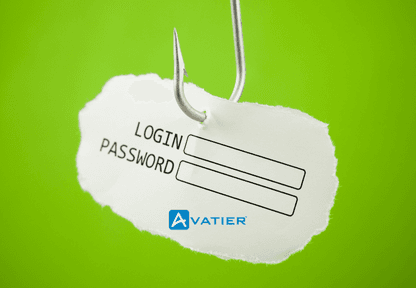August 11, 2025 • Mary Marshall
Why Companies Struggle with PHI Implementation: Overcoming Challenges with Avatier
Explore why companies struggle with PHI implementation and how Avatier’s solutions enhance compliance and security.

Safeguarding Protected Health Information (PHI) isn’t just a regulatory requirement—it’s a fundamental business imperative. However, many organizations find themselves grappling with the intricacies of PHI implementation. This challenge is compounded by evolving regulations and the increasing sophistication of cyber threats, pushing companies to seek effective solutions. Among the suite of identity management providers, Avatier stands out by offering streamlined and unified solutions that address these growing concerns.
Understanding the PHI Challenge
PHI encompasses any information in a medical record that could be used to identify an individual and was created, used, or disclosed during diagnosis or treatment. The Health Insurance Portability and Accountability Act (HIPAA) mandates strict compliance standards for handling PHI to ensure privacy and security. Despite these clear mandates, companies face numerous obstacles in implementing these requirements effectively.
Complex Regulatory Landscape
The primary hurdle in PHI implementation is the complexity of regulations. Companies must navigate various federal, state, and international laws. In the United States, HIPAA is a cornerstone regulation, but compliance doesn’t stop there. Organizations must also consider other standards, like the GDPR if they operate internationally. This complexity raises the stakes for IT departments, as failing to adhere to any part of these regulations can result in hefty fines.
Technological Barriers
Integrating PHI protocols with existing IT infrastructure is another significant challenge. Legacy systems often lack the flexibility necessary to accommodate modern identity and access management (IAM) solutions. This incompatibility can lead to security vulnerabilities, which make PHI data susceptible to breaches.
A 2020 report revealed that healthcare data breaches rose by 55.1% over the previous year, affecting millions of patient records and highlighting the urgent need for robust PHI implementation strategies. This context underscores the necessity for adopting agile and responsive identity management systems that can seamlessly integrate with existing frameworks.
Avatier: Your Partner in PHI Compliance
Avatier excels in navigating these complexities by delivering Identity Management solutions that are both cutting-edge and practical. How does Avatier provide a leg up in this arena?
Unified Workflow and Enhanced Security
Avatier offers a unified identity management solution that streamlines workflow and enhances the security of PHI data. The Avatier Identity Management Suite provides an integrated platform that ensures consistent application of security policies across an organization’s entire IT ecosystem.
Through automation and AI-driven tools, Avatier minimizes manual interventions, thereby reducing human error—a critical factor in many data breaches. By automating user provisioning and self-service capabilities, Avatier allows businesses to maintain high levels of security without compromising operational efficiency.
Complying with Regulations
Avatier’s solutions are designed to meet the rigorous demands of compliance. For instance, the HIPAA Compliance Software offered by Avatier ensures that all facets of the PHI data lifecycle are protected—from creation to storage to access. This comprehensive approach provides peace of mind to organizations by safeguarding PHI against unauthorized access and leaks.
Moreover, Avatier’s compliance solutions help organizations maintain audit trails and conduct regular compliance checks, simplifying the reporting process and ensuring continual adherence to regulatory requirements. By aligning with Avatier, companies can navigate the regulatory maze with confidence and ease.
Identity-as-a-Service Flexibility
One of Avatier’s standout features is its Identity-as-a-Container (IDaaC) technology. This pioneering approach allows companies to deploy identity management solutions more flexibly and securely than ever before. By offering a containerized platform, Avatier ensures that organizations are not locked into specific vendors, thus enabling better cost management and integration capabilities.
Find out more about Avatier’s IDaaC Technology, which is revolutionizing how identity management is approached, especially in relation to sensitive data like PHI.
The Competitive Edge with Avatier
When it comes to PHI implementation, Avatier offers distinct advantages over other heavyweights in the identity management sector. While competitors like Okta and SailPoint provide robust IAM solutions, Avatier’s focus on unifying identity workflows makes it uniquely adept at handling the nuanced demands of PHI data.
Automation Advantage
Automation is a key area where Avatier differentiates itself. According to Gartner, automation reduces the risk of human error and speeds up deployment times. With Avatier’s automated user provisioning, organizations enjoy streamlined processes that are not only faster but also more precise, cutting down administrative overhead and boosting security.
Superior Self-Service
Avatier’s self-service capabilities also stand apart. By empowering end-users to manage password resets and access requests independently, IT departments are freed to focus on more strategic initiatives. This shift not only enhances productivity but also fortifies the organization’s security posture by reducing the time vulnerabilities are exposed.
Explore how Avatier’s Self-Service Identity Manager supports a proactive, user-driven approach to identity management.
Adoption and Integration
Equally compelling is Avatier’s seamless integration capabilities. Companies can implement Avatier solutions alongside existing systems without extensive downtime or overhaul costs. Its ecosystem-friendly approach means that businesses can adopt new security technologies incrementally while maintaining operational continuity.
Conclusion
The future of PHI implementation lies in sophisticated yet manageable identity management frameworks. Companies must navigate a complex landscape of regulations and technological demands. With its unified workflows, regulatory compliance focus, and innovative Identity-as-a-Container technology, Avatier stands ready to support organizations in their quest to protect sensitive health information.
By choosing Avatier, companies not only enhance their compliance posture but also gain a competitive edge through better security practices. As PHI data protection continues to pose challenges, Avatier offers a strategic ally in the journey towards a secure and compliant future.
Learn more about Avatier’s comprehensive suite of solutions to advance your organization’s PHI implementation efforts and safeguard your valuable data assets against emerging threats.









